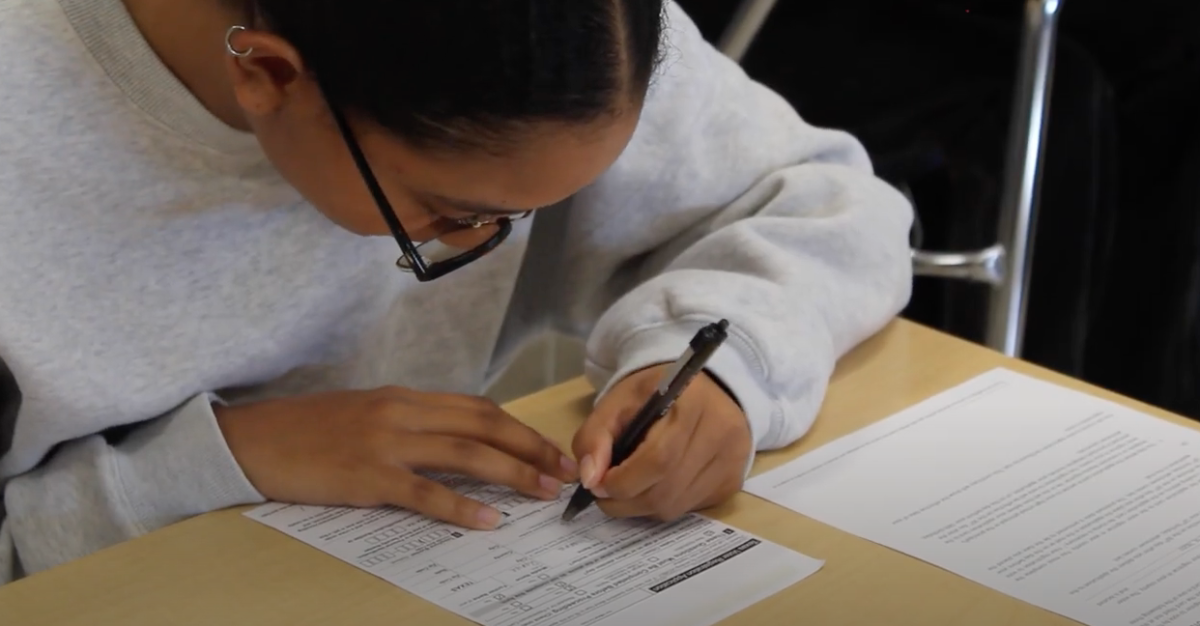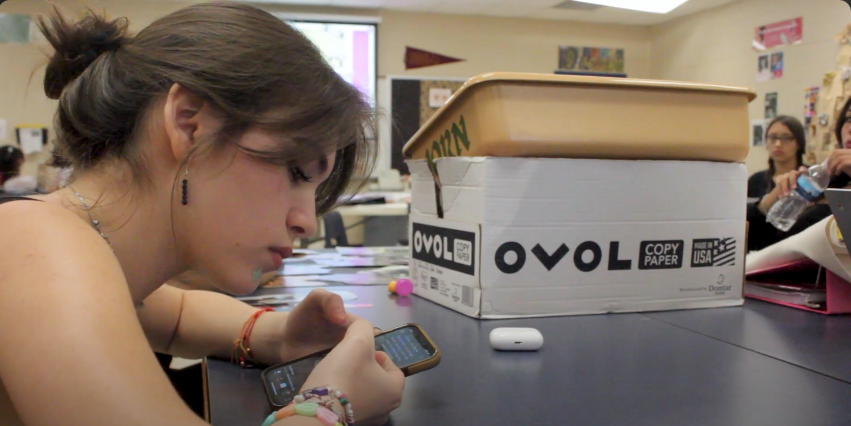by Ryan Polk | staff writer
Showing up late to class, not turning in homework, lack of effort in class. Procrastinating on assignments. These are just a few of the characteristics that can be identified among seniors, especially during the second semester, as college admissions letters arrive and priorities slip for some students.
“I would define senioritis as an excuse by seniors from a perceived level of confidence that they’re gonna be graduating…. to not accomplish any work,” AP Statistics teacher Andrew Clewett said.
There are several reasons as to why some seniors may begin to develop this perception, according to Clewett, one being that some seniors have already been accepted into a college.
“Seniors feel that they have this right to not do any work, because they have a piece of paper that says that they’ve been accepted into a particular college, and/or they’ve met their level of credits that are required,” Clewett said.
However, senioritis can also be attributed to the belief amongst some seniors that their grades now have little to no importance, especially during the second semester.
“[It’s] just cause grades don’t really matter second semester. A lot of us already know where we’re going to college and just stop caring,” senior Thomas

Vonbuettner said.
However, the impact of senioritis can be felt even outside of academics, for example, behavior exhibited by seniors seems to reflect this same mentality.
“I’d say definitely how people start to dress- it definitely goes downhill from caring a lot to not caring at all,” Vonbuettner said.
In fact, according to Vonbuettner, senioritis may be more of an attitude than an actual problem, and may even impact more than just seniors.
“I think it’s more of an attitude thing, [for] some people it could be a little problem but, for others, not so much. It’s definitely a real thing… probably, but I also feel like some teachers like it and wanna have senioritis too,” Vonbuettner said.
However, while senioritis can lead to some silly stories for the future, most students don’t realize the consequences of taking this mentality too far.
“The worst case that I’ve ever seen is a student from last year, a student that needed a math class in order to fulfill his requirements, and he made a decision to not do anything. [It was one of the] requirements for acceptance into a particular college, and the college had already sent him a letter, saying that he was going to be admitted, and because he had that letter, he chose not to do anything all year long,” Clewett said.
So, while it is alright for seniors to have a fun and relaxed second semester of their final year in high school, they must be wary of the fact that grades still carry weight, and work should not be blatantly ignored. They should also be aware that they are the only ones who can make themselves put forth the effort to complete their school work and have a strong finish to their high school career.
“When they have a strong case of senioritis, it doesn’t matter what I say, it doesn’t matter what their parents say, that’s an intrinsic issues,” said Clewett. “And if they’re lacking that intrinsic motivation to accomplish what they know they should be accomplishing is… it doesn’t matter, to a degree, what you can say, until they face the consequences of their actions.”








